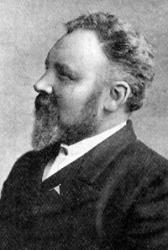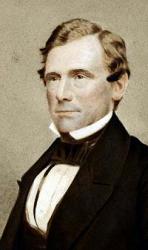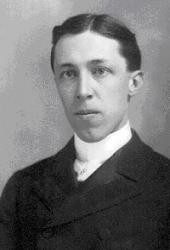Planning worship?
Check out our sister site, ZeteoSearch.org,
for 20+ additional resources related to your search.
- |
User Links
Person Results
Simon Zachariah
b. 1951 Translator of "മഹത്വമായി വർണ്ണിക്കുന്നു" in The Cyber Hymnal
Simon Zachariah
Walter John Mathams

1853 - 1931 Person Name: Walter J. Mathams Author of "God Is with Us" in The Cyber Hymnal Mathams, Walter John, was born in London, Oct. 30, 1853. Early in life he went to sea; but on returning through Palestine to England he began to study for the Ministry. In 1874 he entered the Regent's Park Baptist College as a Student, and subsequently had a pastoral charge at Preston, Lancashire. In 1879, his health failing, he went for a time to Australia and other places. Returning to England, he became, in 1883, minister at Falkirk, Scotland, and in 1888, at Birmingham. Whilst a student, he published a small volume of hymns and poems as At Jesus' Feet, (1876). He is also the author of several religious books of a popular character, as: Fireside Parables, 1879; Sunday Parables, 1883, &c. His principal hymns are:—
1. Bright falls the morning light. Morning.
2. Gentle Jesus, full of grace. Learning of Christ.
3. Go, work for God, and do not say. Christian Work.
4. God loves the little sparrows. Divine Providence.
5. Jesus, Friend of little children. Child's Prayer to Christ.
6. My heart, 0 God, be wholly Thine. Consecration.
7. No room for Thee, Lord Jesus. No room for
Christ.
8. Reign in my heart, Great God. Consecration.
9. Sailing on the ocean. Life a Voyage.
Nos. 1 and 6 of these hymns first appeared in his At Jesus’ Feet, 1876. Mr. Mathams has written several other hymns which have appeared in magazines and elsewhere. One of these, "Good has come from Nazareth," has been set to music by Dr. E. J. Hopkins. The 9 hymns named above are mainly in Baptist hymnbooks. [Rev. W. R. Stevenson, M.A.]
-- John Julian, Dictionary of Hymnology (1907)
==============
Mathams, W. J. , p. 718, ii. Mr. Mathams entered the ministry of the Established Church of Scotland in 1900, acted for two years as chaplain to the Scottish forces in Egypt, and is now (1906) minister in charge of the parish of Stronsay, Orkney. His recent hymns include:—
1. Captain and Comrade of us all. [For Soldiers and Sailors.] Written and printed for use at a service held at Gourock Parish Church, April 10, 1904, on behalf of the Queen Victoria Memorial School for sons of Scottish sailors and soldiers.
2. From heights where God is reigning. [Boys' Brigade.] Written, 1905, for the S. S. Hymnary, 1905.
3. God is with us, God is with us. [Christian Warfare.] Written by request of the Nat. Council of Evang. Free Churches, first sung at their Congress at Nottingham, 1896, and published in the Christian Endeavour Hymnal, 1896.
4. Lord Jesus Christ! for love of Thee. [Christian Warfare.] Written in 1899, in connection with the Centenary Fund of the Congreg. Union. In the Sunday School Hymnary, 1905.
5. 0 Christ, sweet Rose of Sharon. [The Rose of Sharon.] Contributed to the Christian Endeavour Hymnal, 1896.
We may add that of the hymns noted at p. 718, ii., Nos. 2, 3, 4, 5, 8, 9 were contributed to the Baptist Psalms and Hymns for School and Home, 1882, and that No. 7, first printed as a leaflet in 1878, is in the Suppl. of 1880 to the Baptist Psalms and Hymns. [Rev. James Mearns, M.A.]
--John Julian, Dictionary of Hymnology, New Supplement (1907)
Walter John Mathams
John G. Adams

1810 - 1887 Person Name: John G. Adams, 1810-1887 Author of "Heaven is here, where hymns of gladness" in The Methodist Hymnal Adams, John Greenleaf. Co-editor with Dr. E. H. Chapin of the Universalist Hymns for Christian Devotion, 1846; and, alone, of the Gospel Psalmist, 1861. He was born in Portsmouth, New Hampshire, 1810. The collections named contain in each case 16 hymns by him. They are not, however, received outside his sect. The best are:—
1. Heaven is here, its hymns of gladness. [Peace.] Contributed to the Hymns for Christian Devotion, 1846, No. 419, in 4 stanzas of 4 lines.
2. God's angels! not only on high do they sing. [Ministry of Angels.] No. 830 in his Gospel Psalmist, 1861, and No. 240 in Longfellow and Johnson's Hymns of the Spirit, Boston, 1864. [Rev. F. M. Bird, M.A.]
--John Julian, Dictionary of Hymnology, (1907)
John G. Adams
Pedro Castro
1840 - 1887 Person Name: P. Castro Author of "Los heraldos celestiales" in Himnario provisional con los cánticos Pedro Castro Iriarte was converted to Christianity while he was a young man working for a printing company in Madrid. He then served as a pastor, organizing churches in Valladolid and Madrid. He was also a prolific writer of prose, poetry, and children's stories. He also translated many hymns.
Dianne Shapiro from Celebremos su Gloria (Colombia/Illinois: Libros Alianza/Celebration), 1992
Pedro Castro
Thomas M. Westrup
1837 - 1909 Person Name: T. M. W. Author of "¡Valor, peregrino!" in Himnario de la Iglesia Metodista Episcopal Thomas Martin Westrup moved with his family from London to Mexico when he was fifteen years old. He translated hundreds of hymns and, along with his son, Enrique, published a three-volume hymnal Incienso Christiano.
Dianne Shapiro from Celebremos su Gloria (Colombia/Illinois: Libros Alianza/Celebration), 1992
Thomas M. Westrup
Ferdinand Q. Blanchard

1876 - 1968 Author of "Word of God, Across the Ages" in Ten New Hymns on the Bible Blanchard was born on July 12 in Jersey City, NJ. He attended Amherst College (AB 1898) and Yale Divinity School (BD 1901). He was ordained as a Congregational minister and pastored churches in Southington, Connecticut (1901-04); East Orange, New Jersey (1904-15); and at the Euclid Avenue Congregational Church, Cleveland, Ohio, from 1915 until retirement. He died on July 2, 1968 in Cleveland Heights, Ohio.
Sources:
Hughes, p. 317
Reynolds, p. 253
Stuber, p. 396
NN, Hymnary. Source: http//www.hymntime.com/tch/bio/b/l/a/blanchard_fq.htm
Ferdinand Q. Blanchard
Maria H. Bulfinch
Author of "Now we Bring Our Christmas Treasures" in Hymnal and Order of Service Bulfinch’s father was possibly Thomas Bulfinch (1796-1867), author of The Age of Fable, The Age of Chivalry, and Legends of Charlemagne. Maria’s works include:
Margie: A Christmas Story, 1864
Frank Stirling’s Choice, 1867
An Easter-Tide Deliverance
© The Cyber Hymnal™. Used by permission. (www.hymntime.com)
Maria H. Bulfinch
John Kempthorne
1775 - 1838 Author of "Praise the Lord, ye heavens adore him" in The Hymnal of the United Church of Christ Born: June 24, 1775, Plymouth, England.
Died: November 6, 1838, Gloucester, England.
Kempthorne, John, B.D., s. of Admiral Kempthorne, was born at Plymouth, June 24, 1775, and educated at St. John's, Cambridge (B.A. 1796, B.D. 1807), of which he subsequently became a Fellow. On taking Holy Orders, he became Vicar of Northleach, Gloucestershire, in 1816; Vicar of Wedmore, Somersetshire, 1827, and the same year Rector of St. Michael's, and Chaplain of St. Mary de Grace, Gloucester. He was also a Prebendary in Lichfield Cathedral from 1826, and sometime Examining Chaplain to the Bishop of that diocese. He died at Gloucester, Nov. 6, 1838. His hymnological work is:—
Select Portions of Psalms from Various Translations, and Hymns,from Various Authors. The whole Arranged according to the yearly Seasons of the Church of England , with attempts at corrections and improvements. By the Rev. John Kempthorne, B.D.....London. Batchard. 1810.
In this collection there are a few hymns of merit, as ”Forgive, O Lord, our wanderings past," "Great God, to Thee our songs we raise," and "Praise the Lord, ye heavens adore Him," which are usually ascribed, on D. Sedgwick's authority, to J. Kempthorne. These hymns, however, are not by Kempthorne, but were taken by him for his collection from the Foundling Hospital Psalms & Hymns, 1796 and 1801-9; and there is no evidence whatever that he had anything to do with that hymn-book. As that book is frequently quoted by hymnologists, we append the title-page of the 1801 ed., which is a reprint of that of 1797:—
Psalms, Hymns, and Anthems; sung in the Chapel of the Hospital for the Maintenance and Education of Exposed and Deserted Young Children. London, Printed in the Year M.DCCC.I. At the end of some copies of this edition there is pasted in a four-paged sheet of hymns which include, with others, "Praise the Lord, ye heavens, adore Him (q.v.)
In the first edition of his own Selection of Portion of Psalms, &c, 1810, Kempthorne did not in any way indicate his own hymns, but in the 2nd ed. of 1813 (which is a reprint of the 1st ed. with an Appendix of 11 hymns) he says in his Preface:—
“For Hymn 140 and Hymn, p. 267. Appendix; for almost all of Ps. 42, p. 197; Ps. 51, p. 57 and 61; Ps. 84, p. 195; Ps. 86, p. 134; Ps. 115, p. 49; Hymn 127 ; and for a considerable part of Ps. 22, p. 64; Ps. 122, p. 103; Ps. 133, p. 141; Ps. 139, p. 38; Hymns 20, 43, 54, 81, 97, 101, 118, and several others, the Editor is responsible, and acknowledges his obligations to some kind friends."
Of these hymns and psalm versions, which Kempthorne claims as his own, only one or two are in common use.
--John Julian, Dictionary of Hymnology (1907)
John Kempthorne
Dennis Allen
b. 1952 Arranger (last st. and choral ending) of "AUSTRIAN HYMN" in Baptist Hymnal 2008
Dennis Allen
Edward Henry Bickersteth

1825 - 1906 Person Name: Bishop E. H. Bickersteth Author of "Hark, creation's Alleluia" in The Book of Common Praise Bickersteth, Edward Henry, D.D., son of Edward Bickersteth, Sr. born at Islington, Jan. 1825, and educated at Trinity College, Cambridge (B.A. with honours, 1847; M.A., 1850). On taking Holy Orders in 1848, he became curate of Banningham, Norfolk, and then of Christ Church, Tunbridge Wells. His preferment to the Rectory of Hinton-Martell, in 1852, was followed by that of the Vicarage of Christ Church, Hampstead, 1855. In 1885 he became Dean of Gloucester, and the same year Bishop of Exeter. Bishop Bickersteth's works, chiefly poetical, are:—
(l) Poems, 1849; (2) Water from the Well-spring, 1852; (3) The Rock of Ages, 1858 ; (4) Commentary on the New Testament, 1864; (5) Yesterday, To-day, and For Ever, 1867; (6) The Spirit of Life, 1868; (7) The Two Brothers and other Poems, 1871; (8) The Master's Home Call, 1872 ; (9) The Shadowed Home and the Light Beyond, 1874; (10) The Beef and other Parables, 1873; (11) Songs in the House of Pilgrimage, N.D.; (12) From Year to Year, 1883.
As an editor of hymnals, Bp. Bickersteth has also been most successful. His collections are:—
(1) Psalms & Hymns, 1858, based on his father's Christian Psalmody, which passed through several editions; (2) The Hymnal Companion, 1870; (3) The Hymnal Companion revised and enlarged, 1876. Nos. 2 and 3, which are two editions of the same collection, have attained to an extensive circulation. [Ch. of England Hymnody.]
About 30 of Bp. Bickersteths hymns are in common use. Of these the best and most widely known are:—" Almighty Father, hear our cry"; "Come ye yourselves apart and rest awhile"; "Father of heaven above"; "My God, my Father, dost Thou call"; "O Jesu, Saviour of the lost"; "Peace, perfect peace"; "Rest in the Lord"; "Stand, Soldier of the Cross"; " Thine, Thine, for ever"; and "Till He come.” As a poet Bp. Bickersteth is well known. His reputation as a hymn-writer has also extended far and wide. Joined with a strong grasp of his subject, true poetic feeling, a pure rhythm, there is a soothing plaintiveness and individuality in his hymns which give them a distinct character of their own. His thoughts are usually with the individual, and not with the mass: with the single soul and his God, and not with a vast multitude bowed in adoration before the Almighty. Hence, although many of his hymns are eminently suited to congregational purposes, and have attained to a wide popularity, yet his finest productions are those which are best suited for private use.
-John Julian, Dictionary of Hymnology (1907)
=================
Bickersteth, Edward Henry, p. 141, ii. Bishop Bickersteth's 1890 edition of his Hymnal Companion is noted on p. 1312, i., and several of his own hymns and translations, which appear therein for the first time, are annotated in this Appendix. One of these, "All-merciful, Almighty Lord," for the Conv. of St. Paul, was written for the 1890 edition of Hymnal Companion.
--John Julian, Dictionary of Hymnology, Appendix, Part II (1907)
==================
Bickersteth, B. H., p. 141, ii. Bp. Bickersteth died in London, May 16, 1906.
--John Julian, Dictionary of Hymnology, New Supplement (1907)
Edward Henry Bickersteth


 My Starred Hymns
My Starred Hymns

